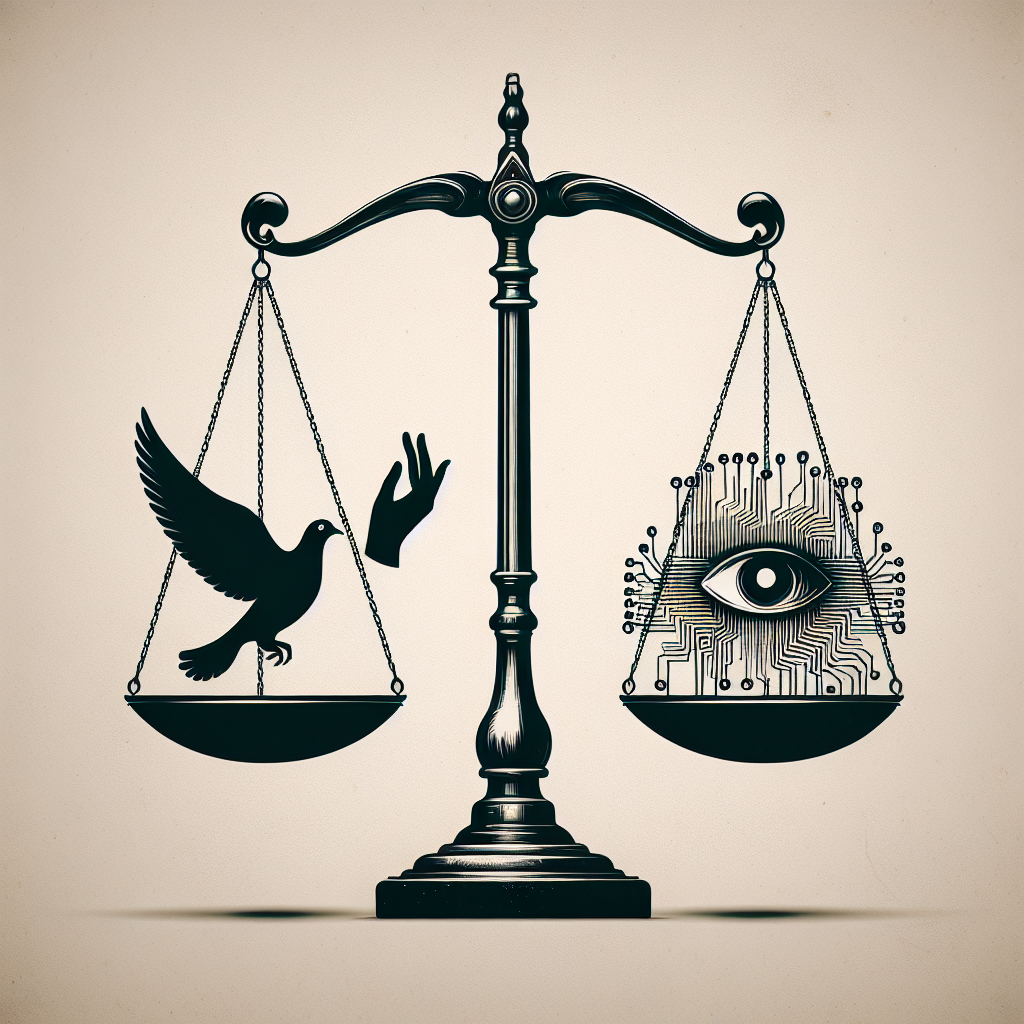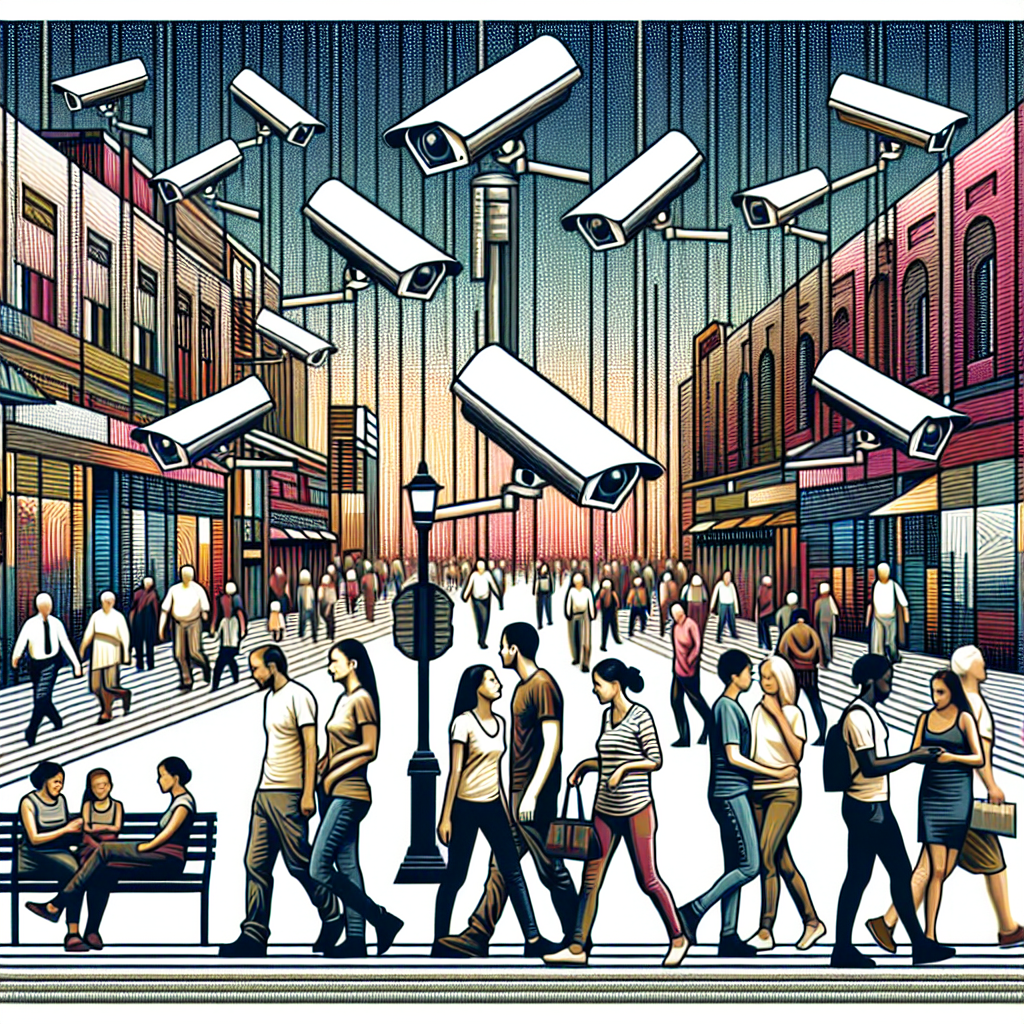The Impact of Surveillance on Civil Liberties and Individual Freedom
Historical Context of Surveillance
Surveillance has a long history, evolving from basic observation practices to sophisticated digital monitoring systems. Governments have historically employed surveillance for maintaining order, gathering intelligence, and combatting crime. However, the advent of the digital age significantly transformed these methods. The capabilities of modern surveillance tools, such as cameras, drones, and digital tracking, raise pressing questions about their impact on civil liberties.
Types of Surveillance
-
Mass Surveillance: This involves the collection of data from the entire population, often conducted by governments. This includes monitoring of communications (emails, calls) and online activities without specific targets.
-
Targeted Surveillance: More focused than mass surveillance, targeted monitoring involves tracking specific individuals or groups deemed suspicious. This may occur through warrants or intelligence gathering based on prior data.
-
Commercial Surveillance: Businesses collect users’ data to enhance services, deliver personalized ads, and analyze consumer behavior. Although not government-led, it poses significant implications for individual privacy.
-
Street-level Surveillance: CCTV cameras, license plate readers, and facial recognition technology are increasingly implemented in urban areas and public spaces. Their deployment has sparked debates about their efficacy and privacy implications.
Legal Frameworks and Limitations
The legal framework surrounding surveillance varies by jurisdiction. In the United States, for example, the Fourth Amendment protects against unreasonable searches and seizures. However, laws like the USA PATRIOT Act have expanded government surveillance capabilities, often at the expense of personal privacy and freedoms.
Internationally, different countries implement varying degrees of surveillance regulations. The General Data Protection Regulation (GDPR) in the European Union enforces stricter rules regarding data protection, aiming to enhance individual rights in the digital space. Nonetheless, enforcement remains inconsistent globally.
Surveillance Technology and Individual Privacy
Modern surveillance technology, including artificial intelligence and machine learning, enhances data processing capabilities, enabling the analysis of vast amounts of information. While proponents argue that these technologies improve security and efficiency, they can lead to intrusive monitoring of citizens’ activities and communications without consent.
Facial recognition technology provides law enforcement with tools for identifying suspects but raises concerns about the accuracy and potential for bias. Errors can lead to wrongful accusations or misidentifications, disproportionately affecting marginalized communities.
Effects on Freedom of Speech and Assembly
The chilling effect is one of the most significant impacts of extensive surveillance. The knowledge that one is being watched may deter individuals from expressing dissenting opinions, participating in protests, or engaging in political discourse. This suppression of free speech contradicts the fundamental rights enshrined in democratic societies.
Moreover, activists and journalists frequently face threats of surveillance, undermining their efforts to report on issues or expose wrongdoing. These risks can lead to self-censorship, limiting public debate and stifling democratic engagement.
Surveillance and Marginalized Communities
Marginalized communities often experience the brunt of surveillance practices. The over-surveillance of specific ethnic or socioeconomic groups fosters distrust between these communities and law enforcement. Rhetoric around public safety frequently justifies invasive monitoring, creating a disproportionate impact on people of color and low-income neighborhoods.
The use of predictive policing algorithms, which analyze patterns to anticipate criminal activity, may further exacerbate these disparities. These systems often rely on historical data that reflect existing biases, leading to a self-perpetuating cycle of increased surveillance and policing in already over-policed areas.
Data Security and Breaches
As surveillance technologies proliferate, the data collected is at risk of theft and misuse. High-profile data breaches expose sensitive personal information, leading to identity theft and financial fraud. In addition to the threat of hackers, data collected through surveillance can be exploited by malicious actors for various purposes, including stalking or harassment.
The long-term storage of surveillance data raises ethical questions as well. Individuals may no longer have control over information pertaining to their lives, essentially turning them into subjects of continuous tracking without their explicit consent.
Psychological Impact of Surveillance
The pervasive nature of surveillance can lead to anxiety and paranoia among citizens. Constant monitoring creates an environment where individuals feel powerless and vulnerable, undermining their sense of autonomy. The fear of being surveilled can inhibit spontaneous behavior and reduce individuals’ willingness to engage contextually in their surroundings.
This psychological burden extends to public social interactions and shapes a culture of conformity, eventually altering societal norms and behaviors.
Public Opinion and Activism
Public perception of surveillance is complex. While many endorse surveillance for enhanced security and crime prevention, a significant segment of the population expresses concern over civil liberties infringements. Activism against surveillance practices has gained traction, leveraging social media platforms to raise awareness and mobilize citizens.
Organizations advocating for privacy rights, such as the Electronic Frontier Foundation (EFF) and the American Civil Liberties Union (ACLU), work to challenge unjust surveillance laws and promote policy reforms. Grassroots movements educate the public about the dangers of unchecked surveillance, encouraging citizens to advocate for their rights.
Ethical Considerations
Ethical considerations surrounding surveillance transcend legal implications. Balancing national security and individual freedom poses a moral dilemma faced by policymakers. The trade-off often leans towards greater surveillance capabilities at the expense of civil liberties, leading to significant societal consequences.
Engaging citizens in conversations about data privacy and surveillance ethics is vital. Transparency about surveillance practices and robust regulatory frameworks can help restore trust between authorities and the public.
Future of Surveillance and Civil Liberties
The future landscape of surveillance and civil liberties remains uncertain. Technological advancements continue to blur the boundaries between safety and privacy. Policymakers must ensure that technological development does not overshadow fundamental rights.
Proactively addressing surveillance issues will require a collective effort from governments, civil society, and individuals. Developing and enforcing stringent regulations, ensuring data privacy, and promoting digital literacy are crucial steps towards safeguarding civil liberties in an increasingly monitored world.
The overall discourse on surveillance must strive for a balance that respects individual freedoms while addressing genuine security concerns, fostering an informed citizenry capable of engaging in meaningful dialogue on the implications of surveillance in contemporary society.












Leave a Reply